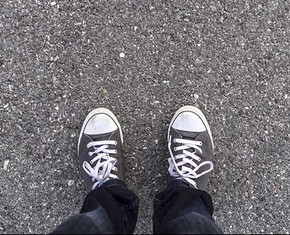The views expressed in our content reflect individual perspectives and do not represent the authoritative views of the Baha'i Faith.
As technology allows us to take advantage of ever-greater global integration, the resulting social changes are amazing, unprecedented, disruptive, and even painful.
Despite the daily dose of bad news, a longer view reveals enormous advances in virtually every area of human endeavor, such as poverty reduction, technology, health, and education.
On the other hand, our present national and international institutions were never designed to handle environmental devastation, stateless refugees, political instability and a plague of other cross-border conundrums. Whether through war, drought or economic collapse, the most vulnerable already bear the greatest burden of our confused politics.
We need to balance the benefits and harsh realities of economic integration with a system that’s more humane. Our own small piece of paradise, however, can’t survive within a larger hell. Achieving the balance the world needs will require working together in a global democracy.
Surprisingly, populism and isolationism may provide the impetus needed to create a more effective international order. There is some evidence of impending change. As the European Union’s Federica Mogherini said:
Today, all global powers are rethinking their place in the world …. From Canada to Australia, from South America to East Asia, from the African Union to ASEAN—there is a whole world calling for effective multilateralism and for partners to build it.
But the question remains: what changes do we need on the international level to create a democratic, sustainable, humane world? As a good reference point for that conversation, the visionary plan put forward by the founder of the Baha’i Faith, Baha’u’llah, has inspired millions. Here’s a brief one-sentence summary, articulated by Shoghi Effendi, the Guardian of the Baha’i Faith:
The unity of the human race, as envisaged by Baha’u’llah, implies the establishment of a world commonwealth in which all nations, races, creeds and classes are closely and permanently united, and in which the autonomy of its state members and the personal freedom and initiative of the individuals that compose them are definitely and completely safeguarded. – The World Order of Baha’u’llah, p. 203.
The Baha’i plan for global governance and unity includes a democratically-elected world legislature composed of representatives, the best and brightest of each nation, conversant in international law and intergovernmental relations, and aware of the most pressing needs of the planet and its people. Most importantly, it’s based on a solid foundation of principles shared by the majority of humanity, such as fairness and respect, rather than the power and glory of relatively few individuals and nations.
Equally worth consideration is the down-to-earth realism of the Baha’i proposal. Its structure is designed to safely contain the never-too-distant forces of tyranny. A world executive, backed by an international armed force, would carry out the decisions of the legislature and apply its laws. A judicial arm, or world tribunal, is also proposed, as a means of recourse and adjudication “… in all and any disputes that may arise between the various elements constituting this universal system.” – Ibid.
There is no doubt that world leaders recognize the need to stabilize the present international order. As terrifying as change may be, effective global governance, if done well, could provide the linchpin solution for many of humanity’s ills. As noted by Shoghi Effendi:
The enormous energy dissipated and wasted on war, whether economic or political, will be consecrated to such ends as will extend the range of human inventions and technical development, to the increase of the productivity of mankind, to the extermination of disease, to the extension of scientific research, to the raising of the standard of physical health … and to the furtherance of any other agency that can stimulate the intellectual, the moral, and spiritual life of the entire human race. – Ibid., pp. 203-204.
















Comments
Sign in or create an account
Continue with Googleor